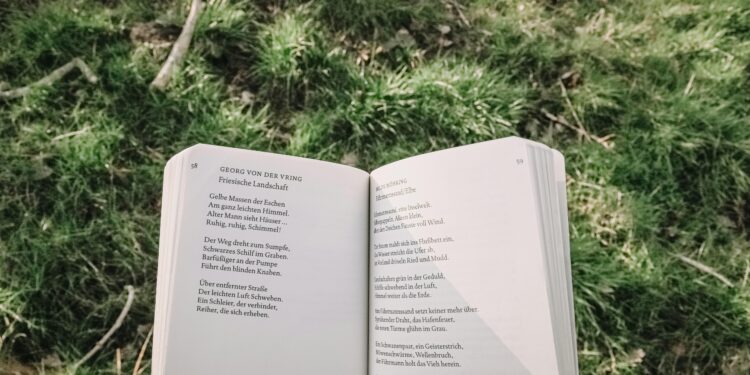Table of Contents
Introduction: The Weight of a Library
It began as a quiet creep, then became an avalanche.
My books, my most treasured possessions, were staging a rebellion.
They spilled from shelves, forming precarious towers on my nightstand and colonizing the floor around my armchair.
Double-stacking, a once-temporary solution, had become the permanent, chaotic state of my bookcases, their spines crying out under the pressure.1
The physical weight was matched by a psychological one.
The very things I loved most had become a source of low-grade, persistent anxiety—a tangible representation of a mind overflowing.
This collection, built with the best of intentions, had grown unruly, a constant, dusty reminder of an intellectual ambition that had outpaced my capacity to contain it.3
My journey to reclaim my space and my sanity was not just about finding a better app or a more clever shelving system.
It was about a fundamental paradigm shift in how I viewed my relationship with my library.
I came to realize that the problem wasn’t the books themselves, but the way I was thinking about them.
I had been treating my library as a static inventory to be managed, a list of assets to be cataloged and controlled.
The breakthrough came when I began to see it not as a collection to be organized, but as a dynamic extension of my own mind—a second brain.
This journey led me to a tool that wasn’t just about listing what I owned, but about understanding the story my library was telling about me.
Part I: The Digital Mirage: My Doomed Quest for Order
My struggle began, as it does for many, with a search for order in the face of chaos.
I believed technology held the key, a digital panacea for my analog problem.
But each attempt only led to deeper frustration, revealing that the tools I was using were built on a flawed understanding of what a personal library truly Is.
The Physical Chaos and the Collector’s Curse
The tangible problems were obvious.
A complete lack of shelf space was the primary symptom.5
Books were stacked horizontally on top of vertical rows, making the ones at the bottom utterly inaccessible.1
This visual clutter was amplified by the collector’s curse: the maddening inconsistency of a series acquired over time.
A trilogy with three different heights, a shift in publisher logos halfway through a beloved fantasy saga, a sudden switch from hardcover to paperback—each instance was a small but sharp-edged frustration, a disruption of the uniformity my inner collector demon craved.5
This physical disarray was fueled by a deeper, more modern affliction.
The publishing industry, particularly in genres like fantasy, has mastered the art of “tactical FOMO style marketing”.6
Limited special editions, with their sprayed edges and custom endpapers, created a frantic pressure to acquire.
I found myself buying books I hadn’t even read, sometimes ones I knew I wouldn’t enjoy, simply because they were beautiful objects.
This impulse-driven acquisition led to a collection that felt less like a curated library and more like an accumulation, leaving me with a sense of regret and the feeling of being “sucked into a part of the book world that doesn’t really align with my goals”.6
My love for stories was being eclipsed by a fetish for the objects that contained them, a “mine-all-mine mentality” that only created more clutter and anxiety.4
The Flawed Savior: My Frustrating Years with Goodreads
Like millions of others, I turned to Goodreads, the undisputed giant of the book-tracking world.
It seemed like the obvious solution, a digital space to finally bring order to my physical chaos.
The reality was a slow-burning disappointment.
The platform felt, and still feels, profoundly outdated, with a clunky interface that seems to have been abandoned by its parent company, Amazon, years ago.7
The user experience is riddled with frustrating quirks, from a search function that collapses with a single typo to a jarringly inconsistent presentation between the desktop site and the mobile App.8
More fundamentally, Goodreads is built on a philosophy that is actively hostile to the needs of a book owner.
Its primary function is to track reading, not ownership.
To catalog a book I owned, I had to navigate a maddeningly inefficient workflow: add the book, which often forced me to shelve it as “Read” or “To-Read,” then find the entry again, click “edit my review,” and only then, after several clicks, could I check a small box indicating “I own a copy”.10
This made the idea of cataloging my hundreds of books in batches an impossible, soul-crushing task.
It was a tool fundamentally misaligned with my primary goal.
The Emotional Toll: When Reading Becomes a Chore
The most insidious problem with the Goodreads paradigm, however, was not its poor design but its emotional impact.
It slowly but surely poisoned my relationship with reading itself.
The annual Goodreads Reading Challenge, which I initially embraced, transformed the pure joy of reading into a public performance.
It became a race for quantity over quality, where I felt a “bizarre sense of shame” for not hitting an arbitrary number I’d set for myself at the beginning of the year.12
I felt like a failure for only reading 34 books, even when I knew I was reading dense, challenging works.13
This performance anxiety was exacerbated by the platform’s often-toxic social environment.
The review sections are notorious for “review bombing,” trolls, and viciously negative takedowns, frequently punctuated by distracting GIFs and other attention-seeking behavior.7
It’s a space where authors’ livelihoods are at stake, creating a palpable pressure to moderate one’s own honest opinions.8
The joy of discovery felt compromised; the community felt less like a cozy book club and more like a gladiatorial arena.
The entire system—from the flawed cataloging to the gamified challenges—seemed designed to create a cycle of anxiety.
The tools meant to solve the problem of book ownership were actually amplifying the psychological burdens associated with it, treating my library as a list to be conquered rather than a world to be explored.
Part II: The Epiphany: From Hoarder to Curator
The breaking point came not with a crash of falling books, but in a moment of quiet frustration.
Staring at my shelves, overwhelmed by the physical objects and disheartened by the digital tools meant to manage them, I had a sudden, clarifying thought.
I had been asking the wrong question.
The problem wasn’t “How do I organize my books?” The real question was, “What is my library for?“
This shift in perspective was everything.
It moved the goal from simple inventory management to something far more profound: Personal Knowledge Management (PKM).
PKM is the process of gathering, classifying, storing, and retrieving knowledge in a way that supports your learning and creative activities.17
My library, I realized, wasn’t just a pile of things I owned; it was a physical manifestation of my curiosities, my intellectual journey, and my past selves.18
It was an external hard drive for my mind.
This led me to a new, powerful metaphor: Building a Second Brain.
The concept, articulated by productivity expert Tiago Forte, proposes creating “an external, centralized, digital repository for the things you learn and the resources from which they come”.20
The purpose of a Second Brain is to offload the work of remembering, freeing your biological brain to do what it does best: “imagine, create, and simply be present”.20
Applying this to my library was a revelation.
Its purpose was not to be cataloged for insurance purposes or to be displayed as a trophy.21
Its true value lay in its potential as an interactive resource—a system I could search, connect, and use to generate new ideas and deepen my understanding of the world and myself.23
The failure of my previous attempts suddenly became clear.
I had been operating under an old and limiting metaphor: the library as an inventory, or KNOWLEDGE AS A RESOURCE.25
This metaphor leads one to seek tools that are good at listing, counting, and storing—like a spreadsheet or, at a basic level, Goodreads.
The primary actions are adding and sorting.
But this metaphor is insufficient because a personal library is deeply tied to self-knowledge.26
The epiphany introduced a new paradigm, the
LIBRARY AS A SECOND BRAIN, which emphasizes connection, growth, and interaction.
This new metaphor demanded a new kind of tool, one that excelled not at listing but at facilitating insight.
The search for the “best app” was futile until I had the right philosophy for what my library is.
The failure of Goodreads wasn’t just a failure of UI design; it was a philosophical failure to understand the deeper purpose of a personal collection.
Part III: The StoryGraph: A Tool for a New Paradigm
Armed with this new philosophy, my search for a tool was no longer about finding the best digital bookshelf.
It was about finding an interface for my Second Brain.
That search ended with The StoryGraph, an app that felt like it was built from the ground up to support this new, more meaningful relationship with my books.
An Ethical Alternative with a Soul
My initial attraction to The StoryGraph was its story.
It was founded in 2019 by Nadia Odunayo, a Black woman, software engineer, and avid reader who, like me, was frustrated with the existing options.27
The platform is a “bootstrapped company,” built by a small, passionate team, not a subsidiary of a tech giant.30
This mission-driven ethos, focused on serving readers rather than directing sales to a monopoly, was a refreshing and compelling contrast to the faceless, commercially-driven experience of Goodreads.31
It felt like an ethical choice as much as a practical one.
The “Aha!” Moment: Features for Self-Knowledge
The true “aha!” moment came after I used The StoryGraph’s seamless import tool to transfer my entire Goodreads history.33
Seeing years of reading data presented in a completely new light was revelatory.
It was here that the app’s design philosophy became clear.
The most transformative feature is its unique review system.
Instead of just a star rating and a text box, The StoryGraph prompts you to describe a book using a new vocabulary: moods (like “emotional,” “adventurous,” “dark,” or “hopeful”) and pace (“slow,” “medium,” or “fast-paced”).35
This simple change is profound.
It forces a moment of reflection, asking you to articulate the
experience of reading the book, not just your judgment of it.
This directly serves the “Second Brain” goal of understanding my own cognitive and emotional responses to different kinds of stories.
This new language feeds into the app’s second killer feature: its data visualization.
The “Stats” page is filled with beautiful, intuitive pie charts and bar graphs that break down my reading habits by genre, page count, and, most importantly, mood and pace.33
This is not a mere vanity metric; it is a powerful tool for self-reflection.
I discovered, for instance, that I consistently gravitate toward “medium-paced, emotional, and reflective” fiction.33
Armed with this knowledge about my own tastes, I can now make more intentional choices, guided by the app’s central motto: “life’s too short for a book you’re not in the mood for”.39
This reader-centric philosophy is evident in a dozen smaller design choices that, together, create a superior experience:
- Nuanced Ratings: The ability to use half and quarter stars finally resolves the classic dilemma of a book being better than a 4 but not quite a 5, allowing for more honest and precise feedback.33
- Built-in “Owned” and “DNF” Status: A single click marks a book as “Owned,” respecting the collector’s primary need.40 A dedicated “Did Not Finish” (DNF) status removes the shame associated with abandoning a book and provides valuable data to the recommendation engine, helping you avoid similar books in the future.36
- Content Warnings: The robust, crowdsourced system for content warnings fosters a safer and more considerate reading environment, a stark contrast to the often-toxic free-for-all of other platforms.33
Ultimately, the power of The StoryGraph lies in its ability to facilitate metacognition—the act of thinking about your own thinking.17
Where Goodreads pushes you into a performance mindset, constantly asking, “How does your reading appear to others?”, The StoryGraph creates a private, introspective feedback loop.
It consistently asks, “What was your experience with this book, and what does it reveal about your tastes?” It transforms the act of logging a book from a simple data entry task into a moment of structured self-reflection.
It is not just a book tracker; it is a metacognitive tool, perfectly designed for anyone who wants their library to be an engine for insight.
Part IV: A Comparative Analysis for the Discerning Collector
While The StoryGraph was the answer for my journey, the “best” app is always subjective, depending entirely on a collector’s core philosophy and primary goal.
To that end, a broader look at the landscape reveals excellent alternatives suited for different kinds of readers.
For the Traditional Archivist: LibraryThing
LibraryThing is for the serious cataloger, the person who thinks like a librarian and prioritizes bibliographic data above all else.
Its greatest strength is its powerful cataloging engine, which draws data from over 2,200 libraries worldwide, including the Library of Congress.11
This makes it far superior for cataloging older, pre-ISBN books and obscure editions that other platforms Miss.11
While its user interface is often described as overwhelming or “old-fashioned,” and its social features are less prominent, its function as a pure cataloging tool is unparalleled.11
For the archivist, LibraryThing is less a “Second Brain” and more a “Personal Library of Congress.”
For the Pragmatic Multi-Media Collector: Libib
Libib is designed for the pragmatist who wants a clean, simple, and efficient way to inventory not just books, but also movies, music, and video games.47
Its primary focus is on building a database, not on social interaction.45
The free version is remarkably generous, allowing users to catalog up to 5,000 items across 100 collections.45
Users praise its fast and efficient barcode scanner, which makes adding items quick and painless.49
While it lacks the deep analytical features of The StoryGraph or the bibliographic depth of LibraryThing, its simplicity and multi-media support make it the top choice for the practical organizer whose main goal is to know what they own and avoid buying duplicates.49
For the Power User and Serious Collector: CLZ Books
CLZ Books, part of a suite of apps for different media, is a premium, subscription-based tool built for the “serious book collector”.52
Its dedicated user base praises its robust feature set, excellent and responsive customer support, and a commitment to constant improvement.22
The app excels at features crucial for managing large collections, such as batch scanning, extensive customizable fields, and seamless cloud syncing across desktop and mobile platforms.52
It is powerful enough to handle complex tasks, like cataloging a retired professor’s 3,000-volume library for an estate sale.52
For collectors who see their library as a significant asset and require professional-grade management tools, CLZ Books is a “powerful inventory app” that more than justifies its subscription cost.52
Feature-Driven Comparison of Top Book Cataloging Apps
To provide a clear, at-a-glance summary, the following table compares these platforms across key dimensions, allowing you to match a tool to your own collecting philosophy.
| Feature / Philosophy | The StoryGraph (The Introspective Reader) | LibraryThing (The Archivist) | Libib (The Pragmatist) | CLZ Books (The Power Collector) | Goodreads (The Social Reader) |
| Core Philosophy | Understand your reading self; a tool for metacognition. | Catalog your library with librarian-level precision. | Quickly and simply inventory all your media. | Professionally manage a large, valuable collection. | Share your reading journey with a large community. |
| Pricing Model | Freemium (Core features free, Plus for advanced stats) | Free (Unlimited books) | Freemium (Free up to 5,000 items) | Subscription-based | Free (Ad-supported) |
| Key Feature for Collectors | Mood/Pace tracking, detailed personal stats, nuanced ratings. | Superior data sources (Library of Congress), excellent for pre-ISBN books. | Multi-media support (books, movies, music, games), clean interface. | Batch scanning, extensive customizable fields, cloud sync across platforms. | Largest user base, Kindle integration, reading challenges. |
| Analytical Depth | High (focused on personal reading patterns and moods). | High (focused on bibliographic data, “library memes”). | Low (focused on inventory, not analysis). | Medium (focused on collection stats, value, location). | Low (focused on social stats, year-in-review). |
| Biggest Drawback | Smaller user base, less robust data for obscure books. | Clunky, “old-fashioned” UI can be overwhelming. | Lacks deep analytical features; visual display is list-based. | Requires a paid subscription for full functionality. | Poor UI, toxic community potential, owned by Amazon. |
Conclusion: My Library, My Story
I still have too many books.
The stacks haven’t magically vanished, and the shelves are just as full.
But the feeling of being overwhelmed is gone.
The physical objects are the same, but my relationship to them has been fundamentally transformed.
The weight has been lifted, replaced by a sense of excitement and potential.
My library is no longer a source of anxiety or a backlog of tasks, but a browsable, searchable map of my own mind.
The journey taught me that the best tool for managing a book collection is one that understands a profound truth: a personal library is more than a list of possessions.
It is the story we tell ourselves about who we are, what we’ve learned, and where we’ve been.
It is a living archive of our intellectual and emotional lives.
By choosing a tool that helps us read that story more clearly, we don’t just organize our books; we come to better understand ourselves.
For me, The StoryGraph was the key that unlocked that understanding, turning my collection from a burden into what it was always meant to be—a source of endless discovery.
Works cited
- Does anyone have trouble thinning out their collection? : r/books – Reddit, accessed August 14, 2025, https://www.reddit.com/r/books/comments/1el73qj/does_anyone_have_trouble_thinning_out_their/
- Maximizing Shelf Space For Your Expanding Book Collection – MK Library, accessed August 14, 2025, https://www.mklibrary.com/maximizing-shelf-space-for-your-expanding-book-collection/
- How to Declutter an Overflowing Book Collection (and Where to Donate Them), accessed August 14, 2025, https://www.realsimple.com/how-to-declutter-books-11691474
- Going Digital or: How I learned to stop worrying and downsize my book collection – Reddit, accessed August 14, 2025, https://www.reddit.com/r/books/comments/1hdia2/going_digital_or_how_i_learned_to_stop_worrying/
- What are your book collecting pet peeves. – Reddit, accessed August 14, 2025, https://www.reddit.com/r/books/comments/19d0e34/what_are_your_book_collecting_pet_peeves/
- Anyone else struggling to keep up/burnt out by all these special editions lately? – Reddit, accessed August 14, 2025, https://www.reddit.com/r/fairyloot/comments/1l89o4s/anyone_else_struggling_to_keep_upburnt_out_by_all/
- Why I Hate Goodreads.com | KS Writer & Teacher, accessed August 14, 2025, https://kswriterteacher.wordpress.com/2015/02/22/why-i-hate-goodreads-com/comment-page-1/
- Goodreads Is Terrible for Books. Why Can’t We All Quit It? | The Walrus, accessed August 14, 2025, https://thewalrus.ca/goodreads-is-terrible/
- www.reddit.com, accessed August 14, 2025, https://www.reddit.com/r/books/comments/npoih7/i_cant_stand_goodreads_anymore_anyone_else/#:~:text=Goodreads%20feels%20so%20old%20%26%20outdated,any%20other%20sites%20like%20it.
- Cataloging App Recommendations? : r/BookCollecting – Reddit, accessed August 14, 2025, https://www.reddit.com/r/BookCollecting/comments/1i4nc01/cataloging_app_recommendations/
- Goodreads v. LibraryThing- Part One – Book Riot, accessed August 14, 2025, https://bookriot.com/goodreads-v-librarything-part-one/
- Goodreads has ruined my love of reading : r/books – Reddit, accessed August 14, 2025, https://www.reddit.com/r/books/comments/j8hw5x/goodreads_has_ruined_my_love_of_reading/
- Why My Goodreads Book Challenge Makes Me Sad – Book Riot, accessed August 14, 2025, https://bookriot.com/why-my-goodreads-book-challenge-makes-me-sad/
- Why I don’t Do the Goodreads Challenge – Drizzle & Hurricane Books, accessed August 14, 2025, https://drizzleandhurricanebooks.com/2021/01/10/why-i-dont-do-the-goodreads-challenge/
- Goodreads Sucks and is Not Worthwhile – The Writing King, accessed August 14, 2025, https://thewritingking.com/goodreads-sucks/
- What are your frustrations/concerns with goodreads? : r/books – Reddit, accessed August 14, 2025, https://www.reddit.com/r/books/comments/c6w8ea/what_are_your_frustrationsconcerns_with_goodreads/
- Personal knowledge management – Wikipedia, accessed August 14, 2025, https://en.wikipedia.org/wiki/Personal_knowledge_management
- There’s Nothing Wrong With Anyone’s Personal Library : r/books – Reddit, accessed August 14, 2025, https://www.reddit.com/r/books/comments/10uncmz/theres_nothing_wrong_with_anyones_personal_library/
- What to Do If Your House is Overflowing with Books – Literary Hub, accessed August 14, 2025, https://lithub.com/what-to-do-if-your-house-is-overflowing-with-books/
- Building a Second Brain: The Definitive Introductory Guide – Forte Labs, accessed August 14, 2025, https://fortelabs.com/blog/basboverview/
- book cataloging software/app – The Well Trained Mind Forum, accessed August 14, 2025, https://forums.welltrainedmind.com/topic/525675-book-cataloging-softwareapp/
- CLZ Books – library organizer on the App Store – Apple, accessed August 14, 2025, https://apps.apple.com/us/app/clz-books-library-organizer/id318799163
- The BASB Book – Second Brain, accessed August 14, 2025, https://www.buildingasecondbrain.com/book
- Your Second Brain: the answer to information overload – The Creative Life, accessed August 14, 2025, https://thecreativelife.net/second-brain/
- The KNOWLEDGE AS A RESOURCE metaphor. – ResearchGate, accessed August 14, 2025, https://www.researchgate.net/figure/The-KNOWLEDGE-AS-A-RESOURCE-metaphor_fig1_229049883
- Self-Knowledge – Stanford Encyclopedia of Philosophy, accessed August 14, 2025, https://plato.stanford.edu/entries/self-knowledge/
- Our Team – The StoryGraph, accessed August 14, 2025, https://thestorygraph.com/team
- The StoryGraph – Wikipedia, accessed August 14, 2025, https://en.wikipedia.org/wiki/The_StoryGraph
- The StoryGraph: How Nadia Odunayo Built a Better Alternative to Goodreads, accessed August 14, 2025, https://www.wearefounders.uk/the-storygraph-how-nadia-odunayo-built-a-better-alternative-to-goodreads/
- ‘Reading is part of my identity’: the woman taking on Goodreads owner Amazon | Books, accessed August 14, 2025, https://www.theguardian.com/books/2025/feb/16/goodreads-amazon-nadia-odunayo-the-storygraph
- Goodreads vs. The Storygraph | New Haven Free Public Library, accessed August 14, 2025, https://nhfpl.org/goodreads-vs-the-storygraph/
- The Case for Leaving Goodreads in 2025 – Old Town Books Blog, accessed August 14, 2025, https://www.blog.oldtownbooks.com/blog/making-the-switch-why-otb-staff-are-leaving-goodreads-in-2025
- Goodreads vs. The StoryGraph: A Reader’s Thoughts – The …, accessed August 14, 2025, https://simmonsvoice.com/13123/showcase/goodreads-vs-the-storygraph-a-readers-thoughts/
- Anyone here using The Story Graph instead of Goodreads? : r/books – Reddit, accessed August 14, 2025, https://www.reddit.com/r/books/comments/10a355c/anyone_here_using_the_story_graph_instead_of/
- Why I Made the Switch. from Goodreads to Storygraph in 2022 | by Lucy – Medium, accessed August 14, 2025, https://medium.com/@lucyreadsbooks/why-i-made-the-switch-416a36d076d5
- How The StoryGraph Can Help Track Your Reading Goals | The Espresso Edition, accessed August 14, 2025, https://theespressoedition.com/the-storygraph/
- From Goodreads to The StoryGraph | Welcome to The Privacy Dad’s Blog!, accessed August 14, 2025, https://theprivacydad.com/from-goodreads-to-the-storygraph/
- StoryGraph Review: Is It Worth It? (2024 UPDATE) | An Historian About Town, accessed August 14, 2025, https://anhistorianabouttown.com/storygraph-review-is-it-worth-it/
- A Comprehensive Guide to The StoryGraph App – notolux, accessed August 14, 2025, https://www.notolux.ca/post/a-comprehensive-guide-to-the-storygraph-app
- The StoryGraph | Because life’s too short for a book you’re not in the mood for, accessed August 14, 2025, https://thestorygraph.com/
- simmonsvoice.com, accessed August 14, 2025, https://simmonsvoice.com/13123/showcase/goodreads-vs-the-storygraph-a-readers-thoughts/#:~:text=This%20was%20my%20first%20time,own%20shelves%20to%20do%20so.
- Goodreads vs. The StoryGraph – Word Wilderness, accessed August 14, 2025, https://wordwilderness.com/a-comparison-of-goodreads-vs-the-storygraph/
- Goodreads, LibraryThing or something else? : r/librarians – Reddit, accessed August 14, 2025, https://www.reddit.com/r/librarians/comments/15kohnv/goodreads_librarything_or_something_else/
- StoryGraph – Apps on Google Play, accessed August 14, 2025, https://play.google.com/store/apps/details?id=com.thestorygraph.thestorygraph
- Best Book Catalogue Apps in 2025 for Your Personal Library – Tidymalism, accessed August 14, 2025, https://tidymalism.com/best-book-catalogue-apps/
- How do you organize your personal library? Struggling to find the right system – Reddit, accessed August 14, 2025, https://www.reddit.com/r/BookCollecting/comments/1m1osvx/how_do_you_organize_your_personal_library/
- Resource Review: Libib.com – Christ. Literature. Culture. – WordPress.com, accessed August 14, 2025, https://christliteratureculture.wordpress.com/2016/03/19/resource-review-libib-com/
- Libib | Library management web app, accessed August 14, 2025, https://www.libib.com/
- Libib on the App Store – Apple, accessed August 14, 2025, https://apps.apple.com/us/app/libib/id721908216
- Using Libib to Manage Your Home Library – Hip Homeschool Moms, accessed August 14, 2025, https://hiphomeschoolmoms.com/using-libib-manage-home-library/
- Anyone using the Libib app? – Christopher Ward Forum, accessed August 14, 2025, https://www.christopherwardforum.com/offtopic/anyone-using-the-libib-app-t57440.html
- Reviews about CLZ.com books database software (2025) – CLZ.com, accessed August 14, 2025, https://clz.com/books/reviews
- CLZ Books – library organizer – Apps on Google Play, accessed August 14, 2025, https://play.google.com/store/apps/details?id=com.collectorz.javamobile.android.books
- Reviews about CLZ.com comics database software (2021), accessed August 14, 2025, https://clz.com/comics/reviews/2021






